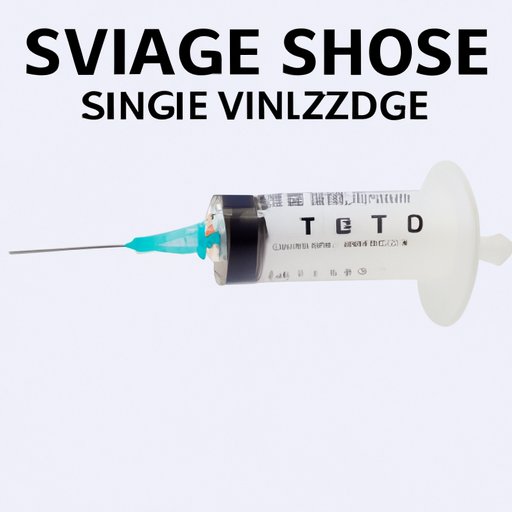
Introduction
Shingles is a painful skin condition that can develop in anyone who has had chickenpox. It is caused by the reactivation of the varicella-zoster virus in the body. There is a vaccine available that can decrease the risk of developing shingles and its painful, long-lasting complications. In this article, we will discuss the importance of getting a shingles shot and explore how often one should get vaccinated.
The Importance of Getting a Shingles Shot: How Often Should You Get Vaccinated?
Shingles can cause a variety of complications, including severe pain, nerve damage, and even vision loss. According to the Centers for Disease Control and Prevention (CDC), approximately 1 in 3 individuals in the United States will develop shingles in their lifetime. Getting vaccinated against shingles can significantly reduce the risk of developing the condition and its complications.
The CDC recommends that all adults aged 50 years and older receive two doses of the shingles vaccine, called Shingrix. The doses are given 2 to 6 months apart to maximize efficacy. However, even those who have had a previous shingles vaccine or had shingles before should still receive the two-dose series.
It is important to note that even if you have already had shingles, you should still consider getting vaccinated to lower your risk of developing a recurrent episode. The vaccine has been shown to reduce the risk of recurrent episodes by approximately 90%.
Maximizing the Effectiveness of Your Shingles Vaccine: A Guide to Timing
Getting vaccinated at the right time can maximize the effectiveness of your shingles vaccine. It is important to give your body enough time to build up immunity before being exposed to the virus. With Shingrix, the CDC recommends getting vaccinated between the ages of 50 and 60 years, before the heightened risk of developing shingles occurs.
It is also important to note that receiving the vaccine at the right intervals can boost your immunity against the virus. The two doses of Shingrix are given 2 to 6 months apart. If you miss the recommended window for the second dose, it is still recommended to get it as soon as possible after.
What Factors Affect Shingles Shot Frequency?
There are various factors that can influence how often someone should get a shingles vaccine. These include age, health history, risk factors, and exposure to shingles.
Age is one of the most significant factors. The CDC recommends all adults aged 50 years and older to receive the two-dose series of Shingrix. Those who receive the vaccine before the age of 50 may require more frequent booster shots.
Your health history and current health status can also affect how often you should receive the vaccine. Those with weakened immune systems or certain health conditions may require more frequent booster shots to maintain immunity against the virus.
Individuals with a higher risk of developing shingles, such as those who have had chickenpox or been in close contact with someone with shingles, may also require more frequent vaccinations. Additionally, those who have had shingles before may still require more booster shots to maintain immunity.
The Risks and Benefits of Getting a Shingles Shot Too Often
Although the shingles vaccine is highly effective, over-vaccination can have potential harms. Getting too many vaccinations in a short period can lead to an overactive immune system, which can result in an increased risk of adverse side effects.
However, it is important to note that the benefits of vaccination should be balanced with immune health. Those with weakened immune systems or a higher risk of developing shingles may require more frequent vaccinations to maintain immunity and decrease their risk of complications.
If you are unsure about whether you require additional vaccinations, it is recommended to consult with your healthcare provider to assess your individual risk factors and needs.
How to Make the Best Choice for Your Shingles Shot: A Comprehensive Guide
When deciding how often to get a shingles vaccine, it is essential to consider all the factors discussed previously, including age, health history, risk factors, and exposure to shingles.
It is recommended to consult with your healthcare provider to assess your individual risk factors and needs. They can provide personalized guidance on the appropriate frequency of shingles vaccinations based on your health history and current health status.
Additional resources, such as the CDC website and the National Shingles Foundation, can also provide comprehensive information on the vaccine and its benefits.
Conclusion
Getting vaccinated against shingles is an essential step in preventing the painful, long-lasting complications of the condition. The two-dose series of the Shingrix vaccine is recommended for all adults aged 50 years and older, with booster shots recommended for those at higher risk of developing shingles or with weakened immune systems.
To maximize the effectiveness of your vaccine, it is essential to get vaccinated at the appropriate intervals and consult with your healthcare provider. By taking these steps, you can protect yourself against shingles and its complications.




